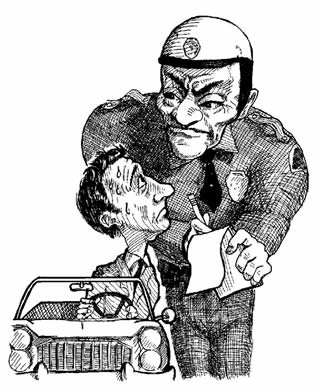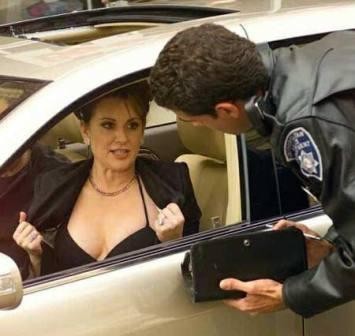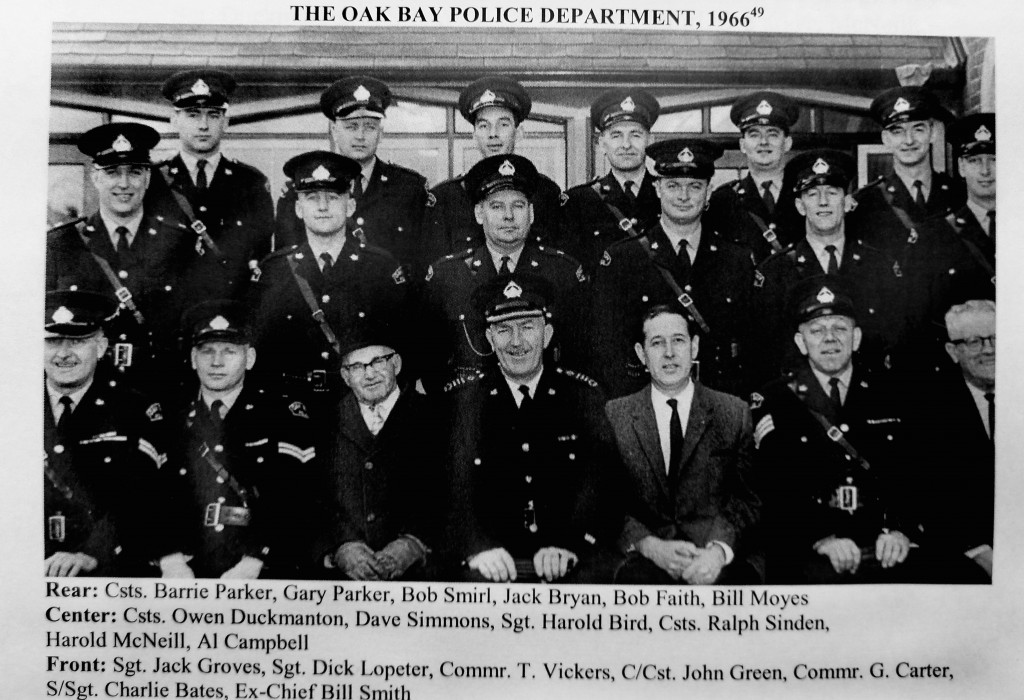Different Strokes for Different Folks 1/4
Photo: Oak Bay Police, 1966, from the book An Historical Perspective of the Members of the Oak Bay Police Department 1906 – 2006
by Sergeant Dan McLean
The four parts of this section, based on the patrol experience of the author, discuss the effects attitude can have on a police officer. This first part explores some of the generalities as well as a study conducted by Constable Terry Toone (Victoria PD) and myself in 1973 while attending the University of Victoria.
Part 2 looks at the challenges faced by one officer as he attends a family dispute in the Cadboro Bay area of Saanich.
Parts 3 and 4, look at my own shortcomings that, on the one hand, served me well on the street, but on the other, did not please my supervisors. In later stories, you will better understand why my career was better suited to that of a front line investigator rather than a back-office administrator.
Link to Part 2/4 Attitude, Attitude, Attitude
1. Working the Street
More than a few police officers work their entire career and never learn some basic skills that would have made their lives so much easier. I was one of those officers, but my challenges were oriented more toward the political than the practical. For that reason, I was destined to spend my career on the street rather than as a Senior Administrator.
Years of street experience taught me that using different approaches could work wonders in reaching a positive outcome, something that was known and practiced by a great many police officers I met over my career. For others there was an adage which went something like this: “Ah, John didn’t have 20 years experience, he had one year of experience, twenty times.”
The use of language, including body language, humour, anger, surprise, sarcasm, deference, curiosity, excitement, awe, confusion, sympathy, empathy, etc., when introduced at the right moment, could help to defuse a situation or reach a positive outcome with suspects, witnesses, youngsters, seniors and any number of others. Skilled interrogators become acutely aware of the importance of using a number of different approaches. If one particular approach did not work, another might.
It was my observation that some officers worried a far too much about protecting their image than reaching a positive outcome. Appearing vulnerable or having to admit a mistake was an outcome that some could never accept and, in many cases, they often became even more aggressive. Early in my career, when I was not yet totally comfortable in my uniform or skin, I made these same mistakes. After overcoming a few of these shortcomings, I learned to adopt different approaches and found that helped to break down barriers that provided a better chance of reaching a positive outcome. Some might say this was being manipulative and perhaps it was, but trying to discern who was guilty and who was innocent, was often filled with shades of gray.
2. Playing with the Unexpected
In random checks (it is now called profiling) I would often say or do something to throw the person or group off guard. ‘Off colour’ language, used in the right situation, often had the desired effect particularly with a group of young men who were in various stages of intoxication. In a jovial manner, “Ok, what are you ‘assholes’ up to tonight – no good I suppose?” Coming out of the blue (so to speak) from a uniformed officer, might quickly break down barriers between the uniform and the group.
 If checking a group at a party or street scene, and one person was acting up because he (it was usually a he) was drunk or just being a jerk, it sometimes helped to be candid: “Could someone help this guy before he talks himself into a jail cell? The rest of us are trying to have a reasonable conversation.”
If checking a group at a party or street scene, and one person was acting up because he (it was usually a he) was drunk or just being a jerk, it sometimes helped to be candid: “Could someone help this guy before he talks himself into a jail cell? The rest of us are trying to have a reasonable conversation.”
If this was done with a conciliatory and cooperative tone, it often worked and a buddy of the loudmouth would pull him (or sometimes, her) away. There was no better way to incite the crowd than to be drawn into a confrontation with the loudmouth (although sometimes there was no alternative). In the latter, you could bet many would side with the loudmouth.
Self-deprecation was also worked well, as it seemed people loved to see a police officer stumble or do something stupid. Remember the fumbling, bumbling TV Detective, Columbo? Probably too many years back for most. Well, he often made himself look confused or lost in order to throw another person off guard. I could play that role rather convincingly. As few fellow officers even suggested it came naturally.
As a small example – if there was a car full of young people I wanted to check for liquor or just to see what they were up to, I would pull them over then formally approach and ask in a crisp, official manner “Could, I see your driver’s licence?”
It was easy to understand why they might expect a coming ‘hassle’. After taking the licence in hand, I would look perplexed and state to the driver, something along the lines: “I’m sorry, this driver’s licence is not valid!” I would pause for a second until a look of dismay crossed the driver’s face, then hand the licence back (upside down) stating: ‘It’s printed upside down, see!’
A confused look would appear on the driver’s face as he took the licence back and after examining it, would turn it right side up and hand it back. He and the group probably wondered what kind of dork cop they were dealing with (only in Oak Bay you say?). I would then smile and laugh at the little joke and everyone in the car would be put at ease. Most often, the check could then be conducted in a cordial manner and if nothing found (no liquor, etc), they were on their way.
If there were underage people and liquor present, I could often complete the seizure without any hassle what-so-ever by making a statement along the lines: “Damn, your dad must have forgotten his liquor in the car. Well, I will take it to the station. Just tell him he can make an application to pick it up.” By initially throwing people off balance by leading them to think you were a klutz, could be very helpful, and often ended with a cheerful ‘good-bye’ rather than someone making an ‘oink, oink’ noise as they drove away.
In most cases, I learned a heavy-handed, authoritarian approach with people, particularly young people, was the least productive way to begin an encounter. Officers using that approach usually ended up provoking a greater confrontation than was necessary, yet there were officers who thrived on confrontation and were very good at taking an otherwise benign situation and turning it into a riot. Believe it or not, we had a couple of those officers in Oak Bay and you just knew things would go downhill when they took the lead.
Above are just a few of the many techniques various officers have developed to ease into and out of situations where they did not want confrontation and, really, who needs a confrontation? Officer’s who employed a more sensitive approach would eventually receive the same pension as those who were more prone to using a heavy-handed approach. This brings me to a study conducted by Constable Terry Toone1, a Victoria Police Officer and myself during our College and University years. Terry later went on to become a D/Chief in Victoria, a city in which his father was at one time the Mayor.
3. Observing the Effects of Attitude
Terry and I first met when we were classmates at the Vancouver Police Academy in 1965 and maintained occasional contact after we returned to our respective departments. Then, in the early 1970s, we again became classmates while completing undergraduate degrees at Camosun College and the University of Victoria. As we often had to complete research papers of one sort or another, we decided on one joint-study concerning ‘Police Citizen Interaction” as this fit with a Psychology course we were taking. Specifically, the study was designed to evaluate the effect the attitude displayed by a police officer (the power authority) had upon a citizen response.
officer (the power authority) had upon a citizen response.
To Terry and me, it seemed the ‘power authority’ (police) would likely set the tone for the interaction as, during our eight years working the street, we had both observed a few officers draw a lot more ‘heat’ in their checks than most others. The same officers were also subject of more citizen complaints than officers who had cultivated a greater understanding of the effect of their uniform and/or position in an interaction. Many studies we reviewed suggested that complaints about police behaviour, rather than being about a physical assault, improper detention or some similar transgression,, were more often complaints about attitude, language, and demeanor.
For the study, we prepared checklists outlining various attitudes that could be displayed by the officer (e.g. anger, aggression, superiority, passivity, aloofness, humour, self-deprecation, sympathy, etc.) and an equivalent number and type of reactions that could be elicited from a citizen.
While the study was largely subjective as (we also evaluated our own interactions), it tended to confirm that, for better or worse, police officers most often set the tone of an interaction. While the response from citizens was not always dictated the officer’s attitude (e.g. humour was sometimes met with aggression), there was a sufficiently high correlation to suggest officers were, to a large extent, masters of their own fate.
4. Traffic Stops
In another example, in our police academy traffic studies with Corporal Lindsay, we were taught to make up our mind about what we intended to do before approaching a violator and to use the same professional approach each time. This, it was said, helped an officer avoid letting the  driver’s behaviour affect the ticketing outcome. Experience, however, taught me this severely limited my ability to conduct the stop and still keep the violator ‘on side’. Most often, it was my desire (perhaps naïve) to see if there might be a chance of actually bringing about a change in driver’s behaviour2.
driver’s behaviour affect the ticketing outcome. Experience, however, taught me this severely limited my ability to conduct the stop and still keep the violator ‘on side’. Most often, it was my desire (perhaps naïve) to see if there might be a chance of actually bringing about a change in driver’s behaviour2.
Photo: Traffic stops could be fraught with danger as in the present example where the young woman attempts to explain her side of the story. For another, humourous look at the subject of “How to make a traffic stop” and how difficult it was to remain calm (link to a video).
In making a stop, I often used an ‘informal’ approach and carried on the discussion in an open and friendly, but professional manner. Although tickets were usually written (if that was my intention) and few violators were pleased with getting ticket (and I certainly wrote my fair share), I would often get a ‘thank you officer’. That ‘thank-you’, of course, was not for the ticket – no one was happy getting a ticket – it was for the friendly approach, discussion and an understanding that getting a ticket was never a pleasant experience. For some officers, there was no time for such niceties as the focus was volume.
Perhaps because I worked in a Department that allowed a bit of time for such luxuries, I often tested various theories of human interaction studied during my undergraduate years and sought to adjust my behaviour in field encounters accordingly. This was not always met with the support of partners, some of whom preferred a more ‘gung-ho’ approach to policing. The next short story is about two Saanich police officers, one who knew the importance of attitude and the other, who, apparently, did not, is a perfect example.
Harold McNeill
Link to Part 2/4 Attitude, Attitude, Attitude
Footnotes
(1) I considered Terry to be one of those exceptional police officers who well understood both the street and the front office. We spend considerable time together and graduated in our early-thirties with degrees from the University of Victoria. Terry’s father was a long-term Mayor of the City of Victoria and Terry would later go on to become Chief of the Victoria Police.
(2) During one of my undergrad courses at University, I became intrigued with studies done in one of the southern states about the short and long-term effects of targeted traffic enforcement using radar. The studies made it clear the effect was of a much shorter duration than most police officers and departments believed.
I set up a few similar tests (one on Cadboro Bay Road by Uplands Golf and another on Henderson Road through the Uplands School Zone. Using a hidden radar I established a base speed at various times of the day. In various ways, I introduced both marked and unmarked units with radar. The results mirrored the US studies showing the effects in reducing average traffic speed was very short-lived (only a few blocks in the city). For example, after passing a radar unit, say on a highway, drivers would reduce speed for a few miles (or blocks in the city) and then resume their normal ‘pre-radar’ speed. The only enforcement that was effective was a certainty that if you were to speed at any time you would get a ticket.
(2716)
Trackback from your site.


Comments (2)
I really enjoyed this post, Harold. I think you’re right about the importance of attitude/presentation. Reading this, though, I was thinking about the changes in officer appearance over the years. This could refer to many changes (gender, ethnicity, moustache/no moustache, etc.), but I’m thinking about the “robo” look of many police these days. This might be influenced by a particle culture in Edmonton, of course, but my impression is that male police officers here are more and more physically intimidating. Many work hard at this, as you suggest in your post. It seems that this is partly because of their protective gear, but they are also, I’d say, just bigger and/or stronger than in the past.
Thanks for posting your thoughts Lorin. It is funny you should mention “the look” as it is something that has crossed my mind. I was astounded at how intimidating the police looked while Sean and I were walking around after game six Vancouver. The same at other times I have noticed them on the street. Black uniforms and heavy gear has made it seem these officers were just waiting for the next riot. In a word, they seemed unapproachable. You have inspired me to write a fifth section to this series, something along the lines of “The Unapproachables” I wonder whatever inspired the police to go to those black uniforms?